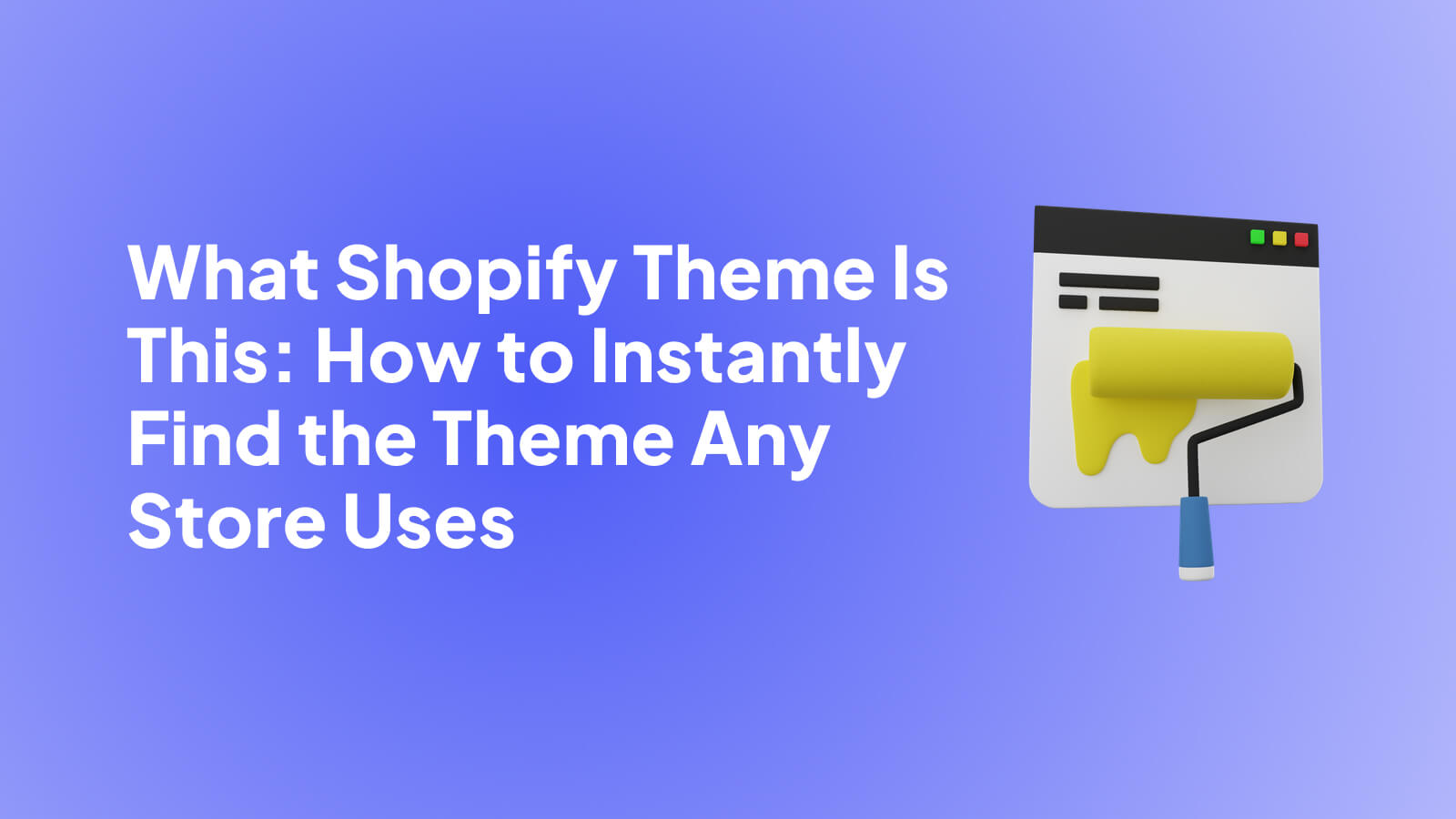%20(1).jpg)
Outer founder and CEO Jiake Liu decided to launch his outdoor furniture business selling direct to consumer, like so many other brands today. Selling directly to consumers through their website rather than through traditional brick-and-mortar stores or wholesalers is a very attractive business model in that it offers huge cost savings and has recently led to the explosion of the “DTC” category. Outer’s primary products, comfortable, high-end sofas come with an array of features such as roll-out protective covering and nano-coating performance fabric. These features help them stand out in the crowded space. Through a beautiful, responsive website full of interactive graphics and GIFs, Outer is able to convey to their customers that they offer a premium product worth the high price point. But selling products exclusively online when shoppers need to see and feel to understand the product’s quality has one major downside…shoppers need to see, touch and feel to truly understand the quality.
Like so many other DTC brands, Outer identified that traditional retail distribution is broken. The process of finding the right retailers to work with and agreeing to their terms can be challenging. Not to mention tying up inventory in retail locations is costly. Outer’s brand is unique and doesn’t match the shopping experience in a Walmart or Target. And while opening up their own brick-and-mortar stores is an attractive avenue that allows for control of the shopping experience, the heavy investment costs is a tough ask for a new startup brand. Still, allowing customers to experience products in person before purchasing online was a crucial problem to solve. The company set out to build something useful for their shoppers as well as something that can disrupt the conventional shopping experience. Enter Neighborhood Showrooms, Outer’s unique peer-to-peer platform for allowing customers to experience their products in-person before buying online.

How Outer’s Neighborhood Showroom program works
Outer’s Neighborhood Showroom program works by allowing shoppers to visit the home of a nearby existing customer to experience products firsthand before purchasing online. Shoppers are able to browse various showrooms in their area and then make an appointment with a local host to come see the product in person. The whole experience feels similar to browsing apartments on Airbnb. Their backyards act as the perfect showroom with furniture in a real life setting that faces all the natural elements that outdoor furniture faces. Unlike the traditional furniture showroom experience, Outer’s Neighborhood Showroom Hosts are available to answer any questions from the shopper in an honest manner and don’t act like pushy salespeople. Since the Hosts are compensated whether or not the visitor ends up purchasing, the experience allows consumers to shop conveniently and confidently.
In August 2021, Outer hit more than 1,000+ unique neighborhoods showrooms. The furniture brand reached this impressive number by inviting existing customers to become “hosts” and show the Outer product they own to new potential customers. This impressive volume of showrooms is beyond even Jiake’s expectations when they initially set out to launch this new shopping concept.
Who benefits from Outer’s Neighborhood Showrooms
Let’s start with Outer itself. The company sees a great number of benefits from their neighborhood showroom program. It has allowed the brand to scale rapidly by establishing a distributed footprint in 49 states across the country. By tapping into their network of happy, passionate customers, they have effectively recreated a similar experience to traditional showrooms without the heavy startup and maintenance costs.
With the rise of crowdsourcing businesses like Airbnb and Uber, the opportunity for individuals to make additional income off of these “micro-gigs” is attractive and the act of inviting an individual in your backyard is natural. Hosts are compensated, of course, but the company stresses that the customer experience is not a sales environment but rather that of an authentic, conversational experience between a customer and a prospective customer. Outer Hosts also receive exclusive benefits for providing others in their community with authentic, unbiased product reviews. Benefits include discounts on other Outer products, early access to new collections, and the ability to help develop new Outer products from the ground up.
Finally, the shopper: this unique, real-life experience of seeing a product in their neighborhood is a huge attraction for the shopper. Rather than entering a high-pressure sales environment, the shopper feels like they are having a friendly conversation with their neighbor who happens to own the furniture they’re interested in. These shoppers get to engage with their community, a much more pleasant experience than entering foreign shops. In fact, according to Outer, 89% of Hosts reported feeling “more connected to their community” after hosting a Neighborhood Showroom visit.
A shifting trend in shopping habits
Launching direct-to-consumer brands is relatively easy and inexpensive thanks in large part to Shopify and other ecommerce platforms. Unfortunately, not all products can be purchased online without friction. Big ticket items with high differentiation often require touch and feel experiences before a purchase. While many DTCs have experienced entering physical retail through distributors, pop-up shops or corporately owned stores, these strategies often come with high costs and time-consuming complexities and ultimately tie up inventory.
Outer’s Neighborhood Showroom program is an example of a growing trend of brands looking to alternative, inexpensive models for consumers to experience their products. Social commerce, the broad concept of rewarding loyal customers for sharing and talking about products they own, is a term that is thrown around more often. Brands looking to connect with their customers in new ways are increasingly turning towards social commerce. Building trust is a key part to attracting new customers to online stores. While online reviews for any product are littered throughout the internet, consumers have learned to take them with a grain of salt or even distrust traditional reviews as they can be easily gamed. Social commerce is a great way to make online shopping personal by engaging with existing customers.
.jpeg)
What can you learn from Outer's success?
The success of Outer’s showroom neighborhood experience shows the value it has brought to their brand and can for yours. It leads to a halo effect of benefits, not limited to increased production of UGC, increase in customer reviews and Q&As, all while cultivating an engaged community within their industry’s niche.
Now’s the time for brands to jump at the opportunity of implementing their own “Neighborhood experience,” and it’s never been more accessible and affordable than with the help of Moast.
Here are some of the successes Outer’s program has had for their brand:
Capturing UGC content
Outer Hosts are encouraged to share images of their home setups using furniture and products they’ve purchased from the brand, which is then uploaded to the Outer website. As a result, customers flock to the site to gain inspiration and ideas on how the furniture looks in real homes from people like them while gaining ideas on how to style it themselves.
Outer can repurpose these images and videos to share across social media channels, reaching new potential customers by providing authentic and engaging content. UGC content plays an integral role in community building and can make a massive difference in the success of your brand.
Collecting Customer Reviews & Feedback
Customer reviews build social credibility with your brand and its product or services. A customer will feel more comfortable purchasing if they see that other people have been happy with the same purchase– this effect is heightened when the customer shares pictures or videos of the product, leading back to our talk on UGC.
Outer’s showroom experience takes this one step further by collecting reviews from customers and enabling them to become Hosts allowing potential customers to not only see images and reviews but also visit the product in person. Outer encourages Hosts to leave reviews and provide feedback on how they can improve the brand’s products and overall experiences.
Here are a few ways you can collect more feedback and reviews:
- Ask them directly through email or SMS campaigns
- Start a #hashtag on social media encouraging users to share content with their products
- Launch a contest or challenge
- Offer incentives
- Conduct customer interviews
A New Approach to Dealer Networks
Dealer networks can significantly affect your business’s success, but that’s not always the case. Building brand awareness and fostering a strong community can be done through your network of customers; implementing a program like Outer’s through the Moast platform enables you to onboard Hosts that act as brand representatives or ambassadors, sharing their experience and satisfaction with their products and the brand.
Oru Kayak is another excellent example of a brand that used the Hosts program, like Outer, to grow a community of loyal and like-minded individuals. They onboarded existing customers, who actively share content, reviews, and feedback while engaging with prospective clients wanting to invest in an Oru Kayak. Hosts are actual users of the brand, making them brand ambassadors that use and like the products. They’re an extension of the brand, offering prospective customers knowledge of its products that stems from a genuine interest.
Ultimately, Outer’s success shows the value of creating a program that allows potential customers to engage in authentic experiences with your brand’s products. Onboarding Hosts alone leads to the halo effect of benefits like more user-generated content, more customer reviews and feedback, and many interested and engaged brand ambassadors. Learn more about how you can get started by visiting our website and contacting our Moast team.
Create Your Own “Neighborhood Showroom” Experience With Moast
Following Outer’s lead, many DTC brands have began to experiment with building similar “neighborhood showroom” programs in-house. Unfortunately, recreating such an experience for shoppers requires heavy startup costs through the investment in technology and complex maneuvering. When done poorly, the outcome can have negative impacts on a customer’s shopping experience, making it important to have a successful launch. Moast has built a platform that empowers brands to create and run their own “Host Programs” in-house, like what Outer created.
With Moast, brand’s can sign up existing customers as Hosts, adding them to an interactive map that is white labeled on their site– prospective customers can then visit the map page to connect with Hosts in their communities. Moasts enables brand’s to get their products infront of their customers without the heavy investment needed for traditional showrooms or brick-and-mortar stores.
By allowing customers to see products in-person before purchasing online, brand can effectively reduce their rate of returns saving them money on shipping costs– leveling the playing field for others brands wishing to incorporate the Outer-style neigborhood showrooms into their online strategy.
Related content
Turn your videos into sales
Boost conversions by up to 30% by turning your existing TikToks and Reels into shoppable videos directly on your Shopify store.










